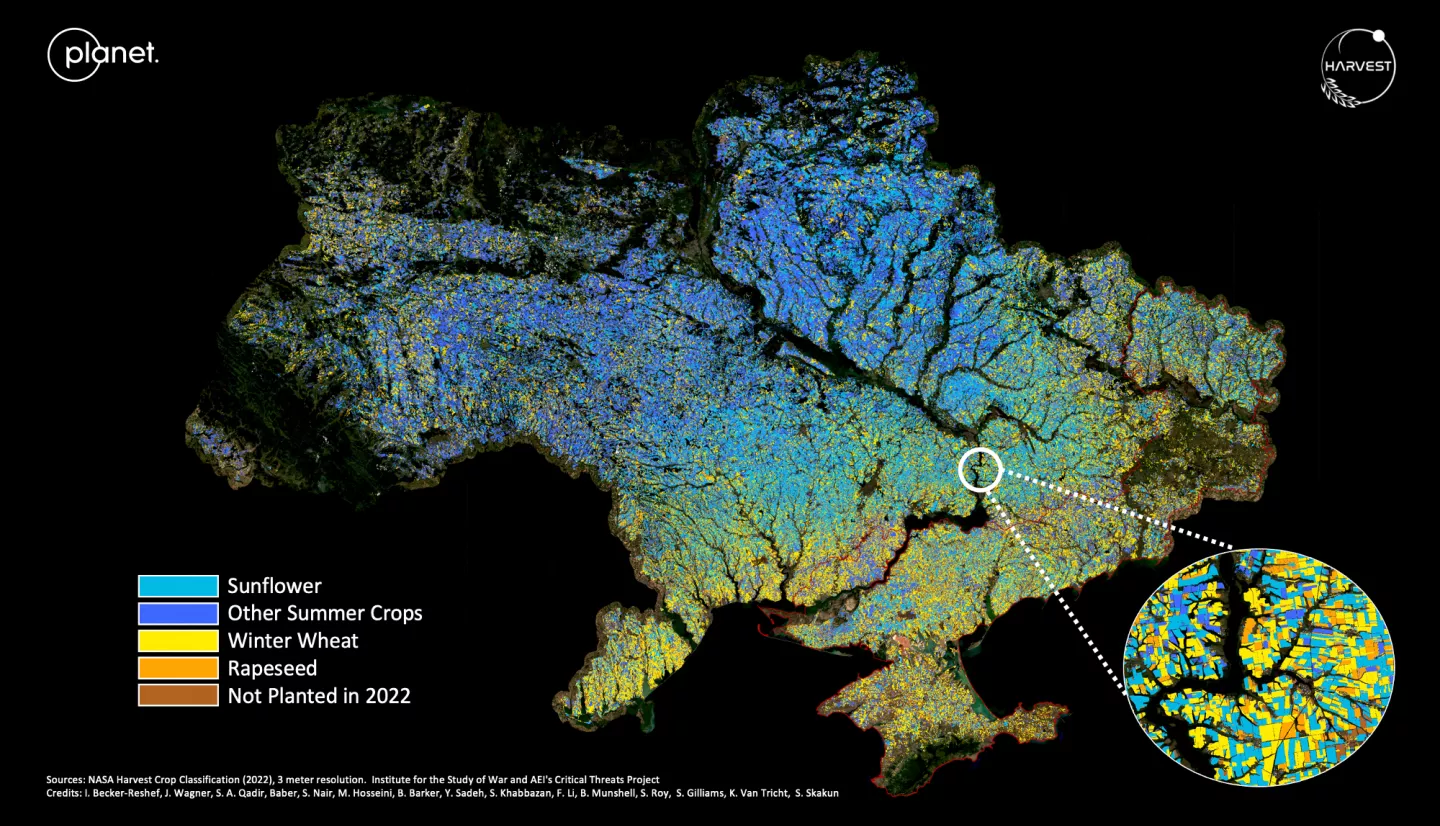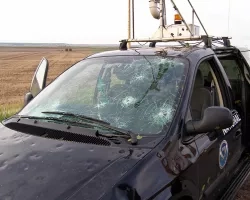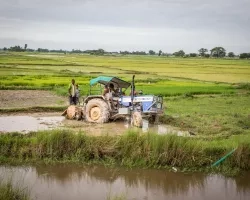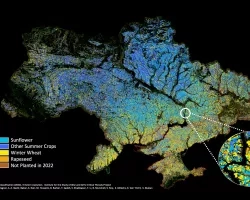NASA Harvest has been awarded the 2023 Arrell Research Innovation award. Awarded annually by the Arrell Food Institute at the University of Guelph in Canada, the Global Food Innovation Awards honor "global leaders who are ensuring future food security for the planet."
NASA’s Global Food Security and Agriculture consortium, the NASA Harvest team is recognized for developing a novel approach based on satellite imaging technology to monitor crop production across both free-Ukraine and Russian-occupied territories – and serving as the only organization currently providing agricultural information in occupied territories. Their innovative process yields invaluable, evidence-based insights for decision-making efforts.
Ukraine, ranking among the world's top 10 agricultural powerhouses and vital in sustaining food security for both local and global populations, has faced significant challenges due to the conflict with Russia beginning in 2022. This event caused disruptions in the nation's food production. Fields were damaged, the farming community endured losses, and input costs surged to unprecedented heights. To compound matters, farmers and producers encountered obstacles in transporting their goods, as normal trade routes were obstructed, and storage facilities were damaged.
In response to this crisis, the Ukrainian government acknowledged the pressing need to comprehensively assess the impact of this conflict on food production and distribution throughout the nation. That’s where NASA Harvest came in.
Last growing season, the results of NASA Harvest's analyses delivered an unexpected silver lining: a larger expanse of cropland than anticipated had been cultivated and harvested. This discovery heralded positive news for the global food system, which relies on Ukrainian exports. Moreover, the finding helped alleviated the turbulence and unpredictability of market prices.
Especially during times of conflict, remote sensing enables a safe and effective means of continued monitoring of food production and supply chains. This helps safeguard food security by enabling crop condition assessments, providing context for resources management, and planning for potential disruptions to the food supply chain, contributing to the overall resilience of our global food systems.



